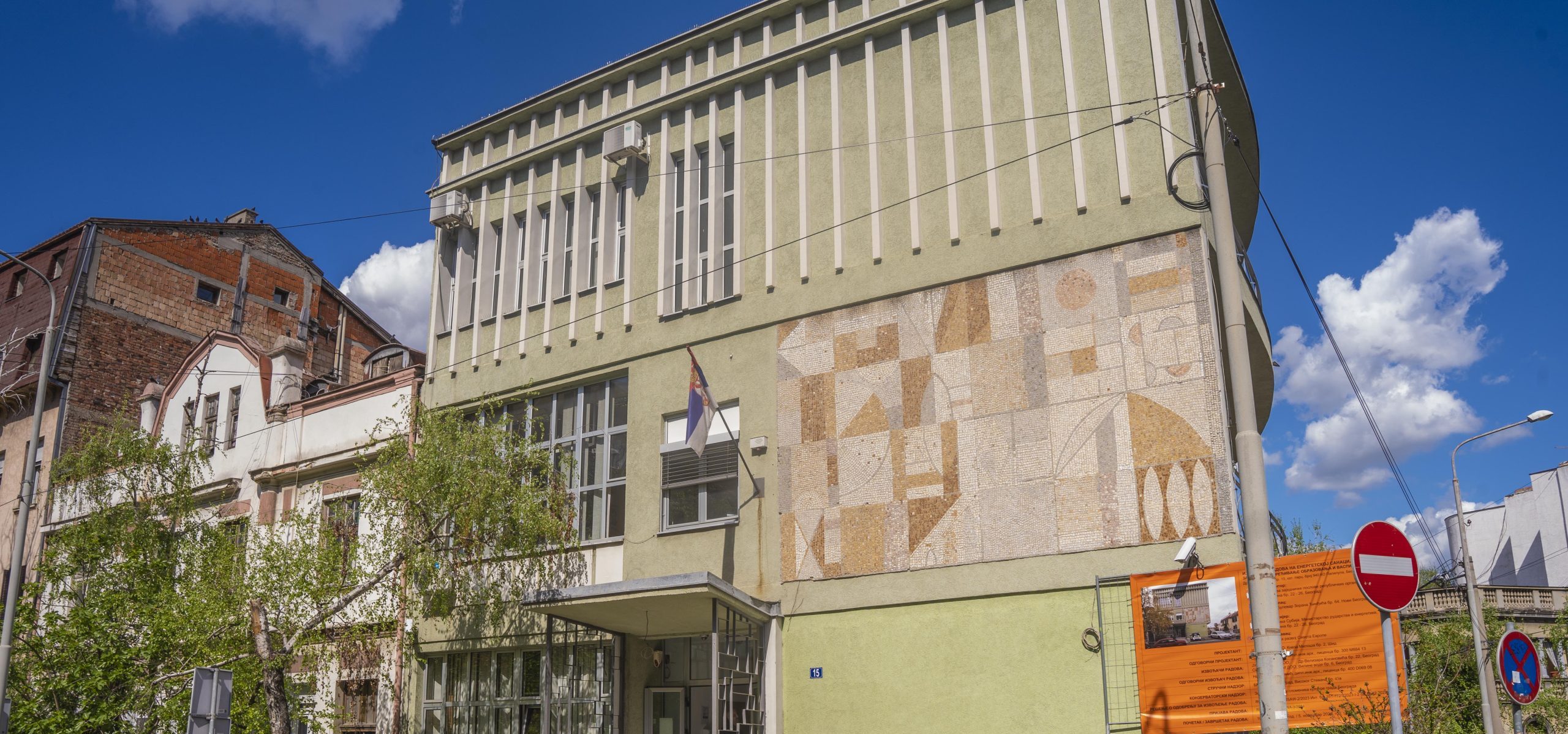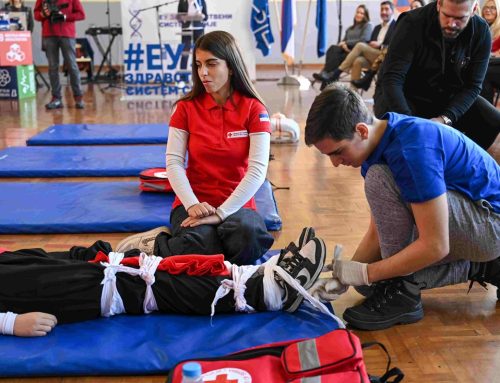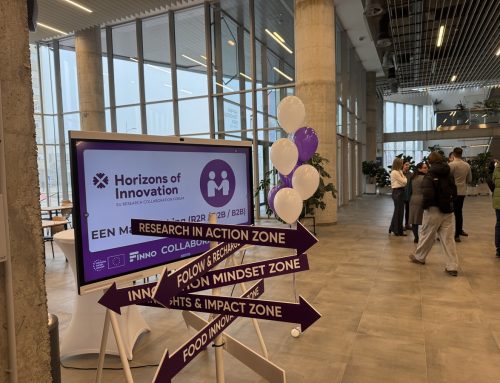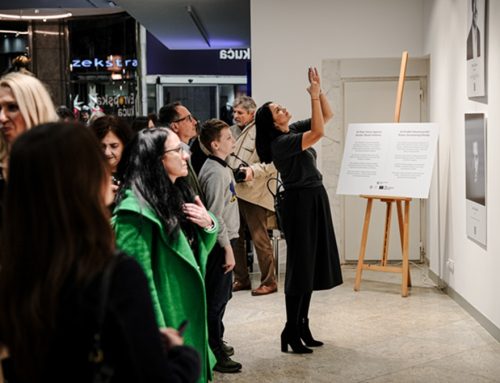Serbia and the European union are working together on a major project to renovate public buildings. The focus is on improving energy efficiency, and the wave of modernisation is gaining new momentum with today’s commencement of works on the energy renovation of the Institute for the Improvement of Education in Belgrade.
Energy efficiency is the key to reducing emissions caused by buildings, emphasised Plamena Halacheva, Deputy Head of the Delegation of the European Union in Serbia, and added:
“It is an important element in combating climate change. That is why the EU has so far provided around EUR 150 million in grants for the renovation of public buildings in Serbia. Our focus is on buildings in the education, health and social sectors. Climate change is real, it affects us all and Southeast Europe is no exception. Therefore, projects like these have an important that goes beyond the renovation of buildings, they are an integral part of our action for the climate and energy transition”, said Halacheva.
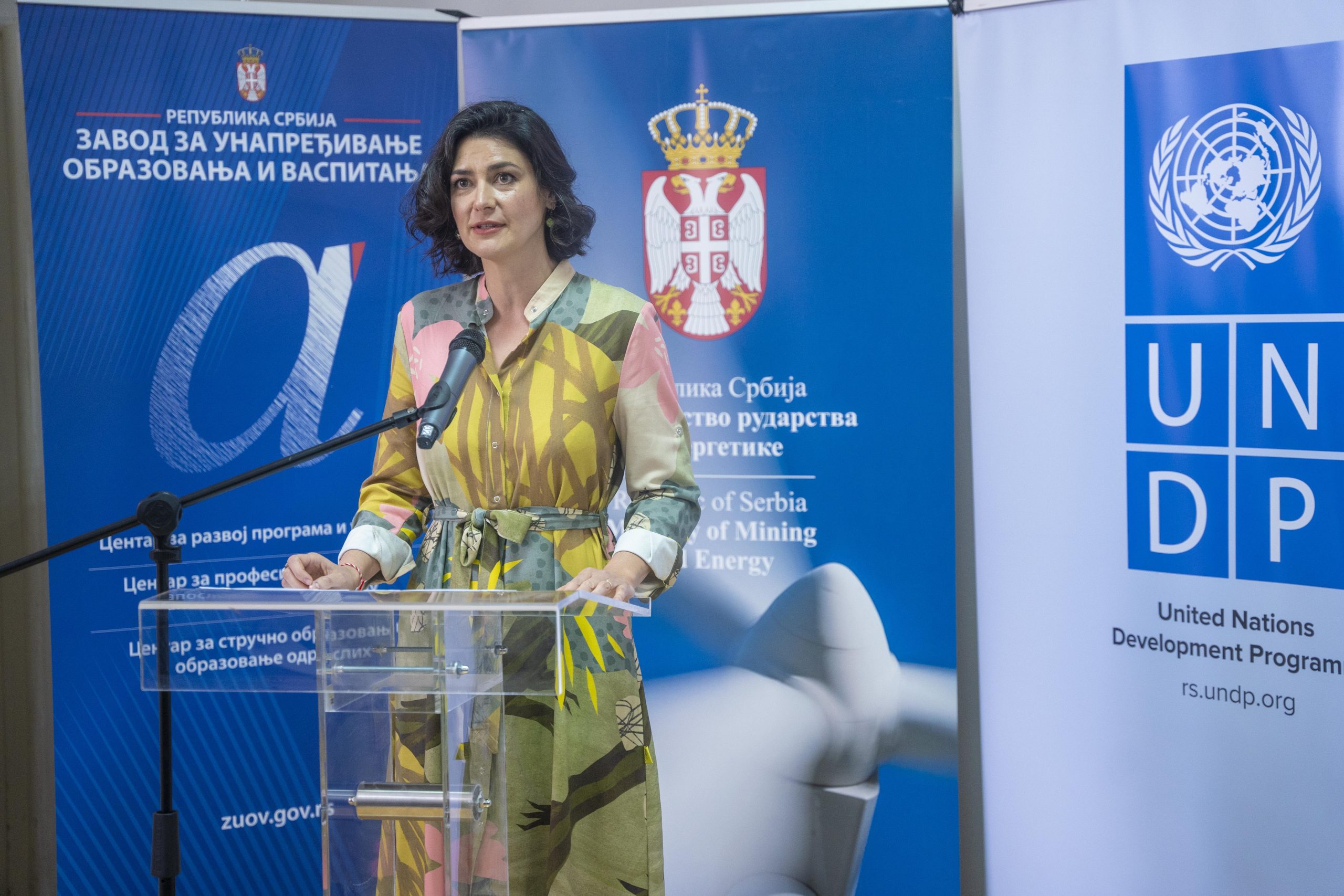
Serbia is among the countries with the lowest energy efficiency in Europe. The World Bank estimates that 35 percent of energy consumption in households, 40 percent in the public sector and 25 percent of energy in the industrial and commercial sector can be part of the savings, taking into account untapped potentials. For example, 300 to 400 residential buildings do not have thermal insulation.
The Vice-Governor of the Council of Europe Development Bank, Tomaš Boček, pointed out that this year marks 20 years of very successful cooperation between the Serbian authorities and that institution.
“Together with our partners from Serbia, we managed to implement a large number of projects in the sectors of health, education, culture, social protection, as well as environmental protection. Over the past 10 years, the Development Bank has approved 19 loans in the total amount of one and a half billion euros. Energy efficiency measures are among the key measures that we will continue to implement”, Boček said.
“Increasing the energy efficiency of public buildings is good for our health, the environment and the budget, as it reduces electricity and heating bills, as well as greenhouse gas and particulate matter emissions. The energy savings we will achieve by renovating 26 central government buildings is equivalent, for example, to the annual electricity consumption of all citizens in the municipality of Sokobanja. If all public buildings in Serbia were to be reconstructed, one thermal power plan would become redundant. Therefore, it is important to continue their energy renovation with financing from loans, public-private partnerships and public funds,” said Yakup Beris, UNDP Resident Representative in Serbia.
The Minister of Mining and Energy, Dubravka Đedović Handanović, said that the entire facility of the Institute for the Improvement of Education will be completely renovated, and the works will be completed in November this year.
“The works will include thermal insulation of walls and roofs, as well as the renovation of the façade. A centralised cooling system will also be installed, so there will no longer be air conditioners on the façades. More attention should be paid to public buildings and buildings under protection, as is the case with the Institute. Also, sensors will be installed on the windows so that the air conditioner does not work when the windows are open, there will be new valves on the radiators and also LED lighting will be installed everywhere. This is the first public building at the central government level that will be the subject of renovation of the total of 26 buildings that will be renovated in the coming period. I am glad that we will enable people at the Institute to have better and more pleasant working conditions, and above all that we will make it possible for the Institute to generate significant savings, about EUR 10,000 annually”, said the Minister.
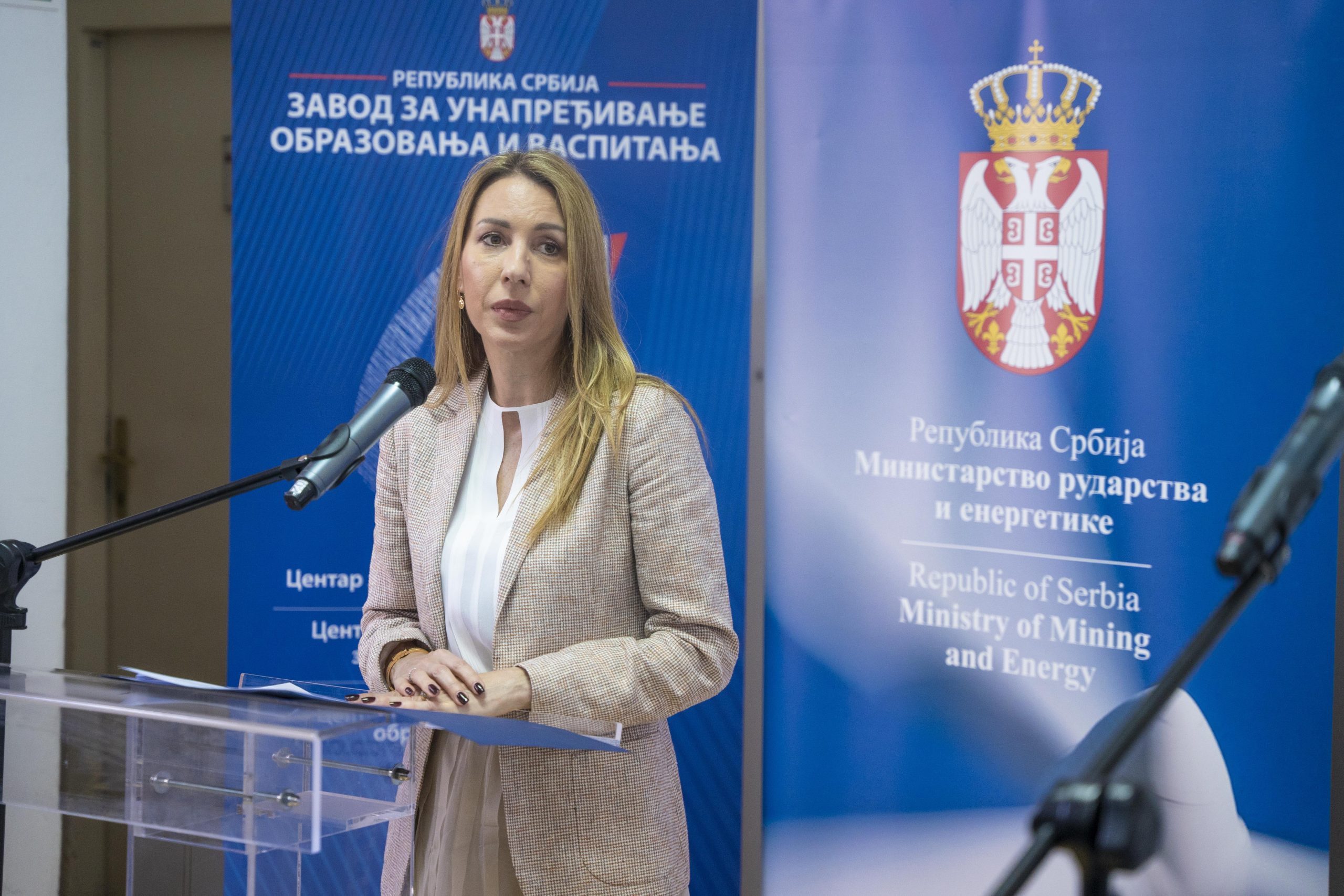
The program financed through the Western Balkans Investment Framework (WBIF) includes the renovation of up to 28 buildings in Belgrade with a total area of 208,000 m2, of which 50 percent are listed as buildings of cultural importance. The project should contribute to a minimum reduction of primary energy consumption by 30 percent, reduction of CO2 emissions by about 20 percent, improvement of working conditions, improvement of safety at work and approximately 29 percent savings in operating costs for energy. In addition, the project should contribute to the protection and preservation of cultural heritage buildings.
EU support to Serbia in the energy sector since 2000 amounted to more than one billion euros. The EU is currently improving the energy efficiency of several hospitals in Belgrade, including the largest hospital – Military-Medical Academy (VMA). So far, the EU has provided grants for energy efficiency measures in 200 buildings in Serbia, from kindergartens and schools to other large hospitals and public buildings.

